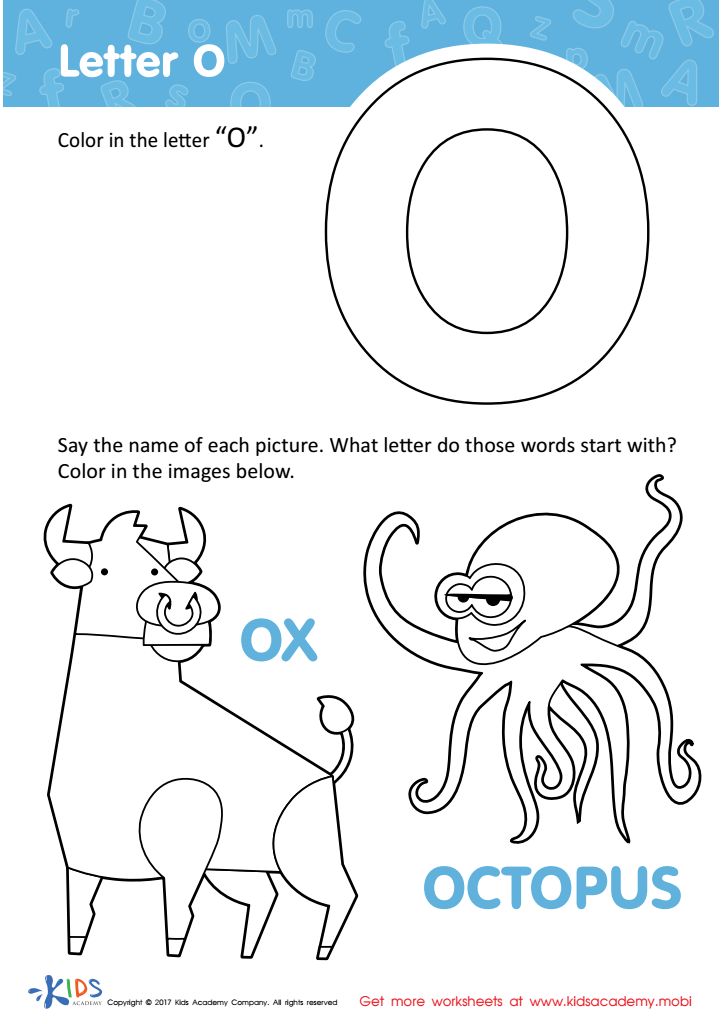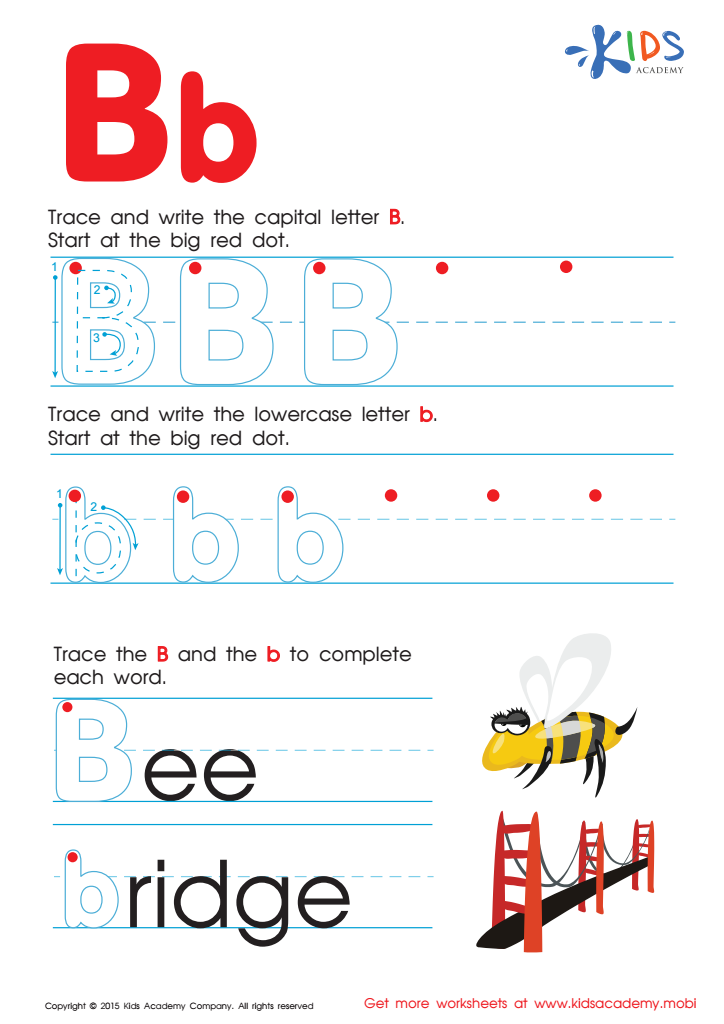Motor skills development Normal Alphabet Worksheets for Ages 3-4
3 filtered results
-
From - To
Boost your child's fine motor skills and early literacy with Motor Skills Development Normal Alphabet Worksheets for Ages 3-4. Designed by experts, these engaging printables make learning the alphabet fun and interactive. Each worksheet incorporates tracing activities that enhance hand-eye coordination and dexterity, essential for writing readiness. Perfect for preschoolers, these resources support cognitive development while fostering a love for learning. Help your little one gain confidence in letter recognition and formation today. Dive into our collection and watch your child thrive academically and creatively. Ideal for parents and teachers dedicated to early childhood education.


Letter H Tracing Page


Letter O Coloring Sheet


Letter B Tracing Page
Developing motor skills in children ages 3-4 is crucial for their overall growth and later academic success. Motor skills are divided into two types: fine motor skills, involving small muscle movements (like writing and buttoning), and gross motor skills, involving larger muscle groups (like walking and jumping).
For children in this age group, motor skills impact their ability to interact with their environment and peers. Fine motor skills, for example, aid in drawing, using scissors, and starting to write the alphabet. This not only contributes to their cognitive development but also boosts their confidence and independence.
Gross motor skills are equally important, as they help children navigate and explore their world actively. These skills foster better coordination, balance, and physical fitness, which are essential for any sport or physical activity later on.
Regular attention to motor skill development ensures that children are ready for school, both physically and emotionally. Simple activities like playing with playdough, stacking blocks, and engaging in nature walks can significantly boost these skills. Therefore, parents and teachers should invest time in activities that develop motor skills, setting a solid foundation for their child's future success and well-being.

 Assign to My Students
Assign to My Students















